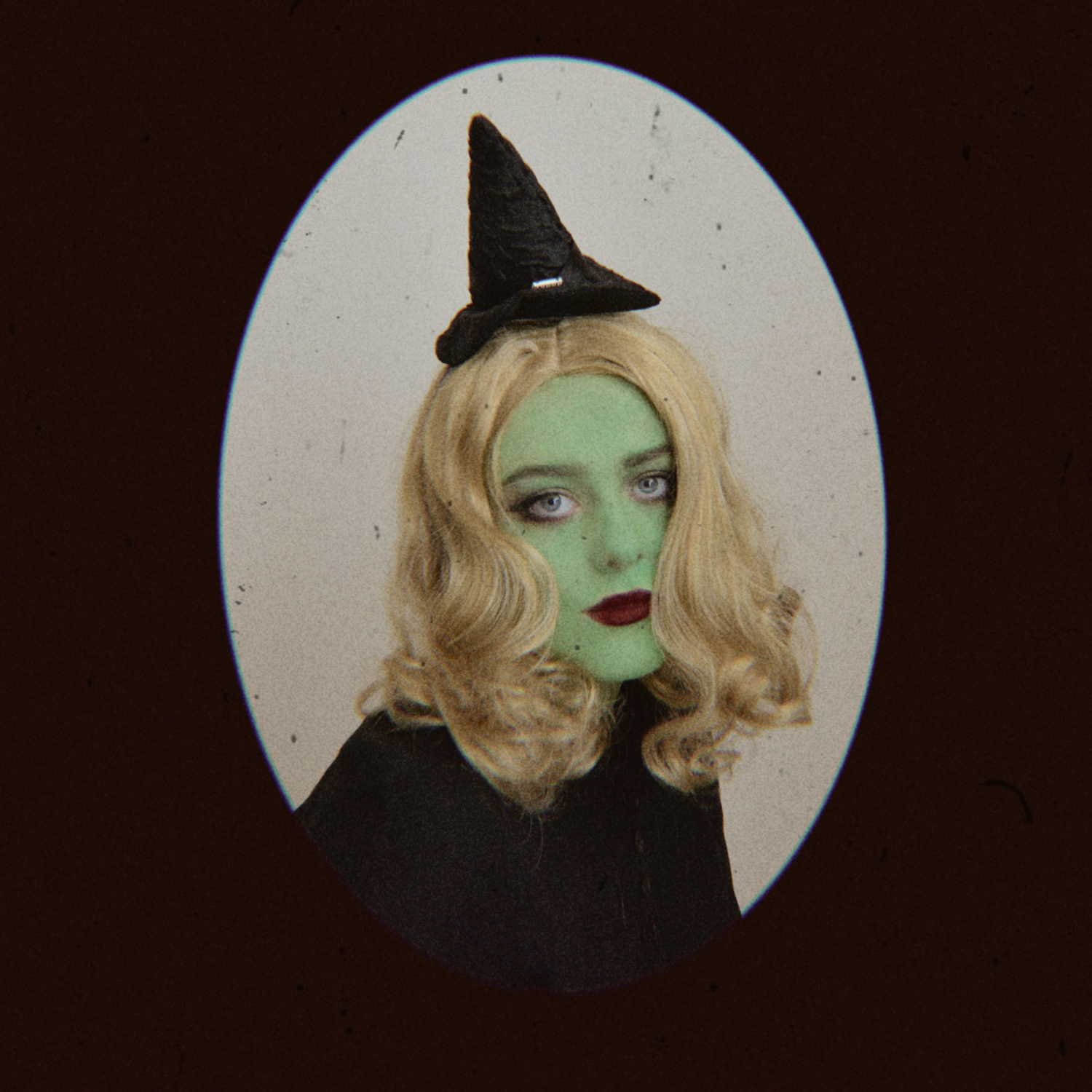Film Fatale: I Married a Witch
Make it stand out
I Married a Witch (1942) introduces the manic-pixie witch girl in full swing. Veronica Lake, with her iconic peek-a-boo hairstyle, plays Jennifer - a resurrected 270 year old witch. Back in the Salem Witch Trails, Jennifer and her father Daniel, are burnt at the stake and buried under an oak tree to contain their unrested spirits. Jennifer curses her accuser, Jonathan Wooley, to marry the ‘wrong woman’ along with the rest of his male bloodline for decades to come. Fast forward to the 1940’s and she’s back, but accidentally falls in love when a spell goes wrong.
Jennifer is playful and child-like - a bit different to how you would think an ancient witch would be. She slides down (and up) the staircase banister, messes up her spells and, even before drinking the love potion, is focusing her energies on being flirtatious and beautiful. After laying dormant for generations, her first cause of action is to make sure she’s pretty - asking Wooley if he ‘prefers brunettes’. After all this time, these men are still on her mind.
Daniel agrees to cast a spell to give Jennifer a physical body, but he needs fire. They decide to burn down the ‘Pilgrim Hotel’ for this, and luckily enough Wooley is there to rescue the witch. This scene plays out as a build up to the big reveal of Veronica Lake’s beauty. Like Wooley, we have yet to see her. She even asks him if she’s pretty enough, before Lake appears on screen and there’s a face to the mischievous voice we’ve been following.
It is no surprise that the character of Jennifer was written as love obsessed to match her ditsy persona. Be it the 1940’s or 2010’s, the on screen witch is cursed with the never-ending obsession with love. She desires and is desired, and it leaves little room for anything else in her life.
I Married a Witch inspired an array of housewife witches, from the 1950’s Bell, Book and Candle to the more recent Bewitched. There is a consistent trope to be found of men writing women who are seductive and can fix problems with a click of their finger.
This fantasy is a more literal version of the ‘manic pixie dream girl’, instead of having dyed hair and an unusual taste in music, she actually embodies a real otherworldliness. She can swoop in, even after hundreds of years, and save the day - after somehow worsening the problem to spice up the narrative, of course.
The narrative plays into a ‘sleeping beauty’ trope that a woman will helplessly wait for a man to save her, but this modernised version drapes the woman in a position of false power. She has the ability to do anything she pleases, but whether it be due to a spell, a curse, or just her womanly ways, her mind is consumed by man.
In a particularly disappointing finale, the film jumps a few years ahead where Jennifer and Wooley are married with children. Jennifer is dressed modestly with that luxurious long hair pinned back, depleting her previous sense of uniqueness and playfulness. The bitterness is enhanced when you find that Lake and Fredric March (Wooley) actually grew to despise each other whilst filming. Once reading this, the lack of chemistry between the two became clear. The film is a strange comedy that makes the audience not care about any of the characters except Jennifer, and her cutesy witchiness is just enough to pull us through.
I Married a Witch is silly. It’s effect is simple but charming. It’s easy to imagine a group of middle-age male producers and writers in a Hollywood office slapping their knees at the very basic and obvious jokes that the film entails. When Jennifer and her father are released from under the oak tree, they are both figures of smoke, talking to each other in their upbeat tones and hiding in empty, or half empty, liquor bottles. This section is really dragged on, but I can’t complain too much: It’s fun, and the effects are again simple but effective, giving the film that traditional stamp of 1940’s and 1950’s screwball comedies.
If only during the writing stage the creators recognised that the character of Jennifer could have been a real hit. If they were to back away from the usual comedy-romance money making structure, they could have made something really memorable. I would have liked to see Jennifer flying her broom around town causing havoc instead of becoming a traditional housewife and mother. Personally, I’d rather had stayed under the oak tree.
Words and Imagery: Charlotte Amy Landrum


